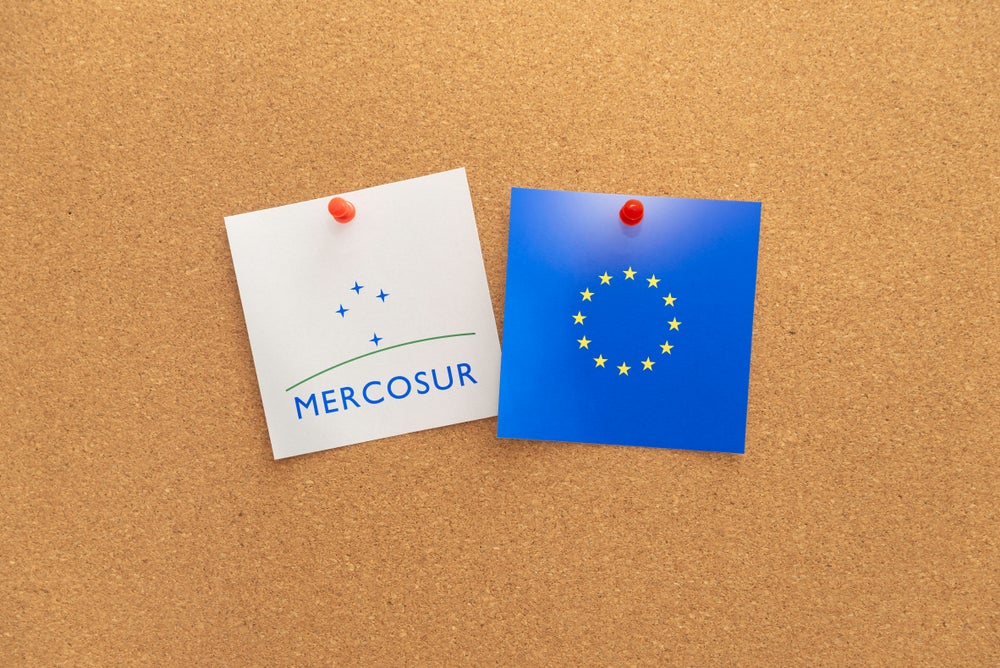
The joint letter published by Euratex on behalf of the EU’s apparel suppliers as well as Brazil and Argentina’s apparel industries calls on the President of European Commission, President of the Republic Brazil and President of the Republic of Argentina to ratify the Free Trade Agreement by all contracting parties within the next six months.
Two years on and the EU industry as well as its counterparts in Brazil and Argentina are desperately calling on all the contracting parties to take the necessary steps to facilitate the finalisation of the agreement.
The letter states: “We are confident that with the commitment and continued effort of both sides of the Atlantic the EU-Mercosur agreement can be ratified by all the contracting parties by the end of 2023. ”
The benefits of the agreement for apparel industry
Dr Sheng Lu, associate professor in the Department of Fashion and Apparel Studies at the University of Delaware tells Just Style exclusively Latin America is a strategically important region for the EU given EU fashion brands and retailers are derisking their supply chains in response to the current business environment and are actively seeking new sourcing opportunities beyond Asia.
He says: “I agree with Euratex and other trade associations that the EU-Mercosur trade agreement will be a great opportunity to boost textile and apparel trade between EU members and Latin American countries and promote supply chain integrations.”
He adds that EU luxury textile and apparel producers could benefit from a significant tariff cut under the trade agreement and expand their exports to Mercosur members like Brazil, which he says is one of the world’s largest emerging consumer markets.
Plus, he highlights that the relatively liberal apparel rules of origin in the EU-Mercosur agreement provide critical flexibility that allows fashion companies to use the agreement for sourcing purposes.
Finally, he says: “The agreement’s environmental protection provisions and sustainable development concepts could promote green trade and drive new investments in circular fashion and textile recycling.”
Why the agreement needs to be ratified in 2023
In the letter the representatives from the apparel industry explain: “During the last three years, multiple crises have shown the vital importance of resilient supply chains, whose strength depends on well-established trade relationships, especially between like-minded partners, like Europe, Brazil and Argentina .”
It continues: “The recent travel of the Commission President Von der Leyen to Latin America, especially to Brazil and Argentina, demonstrates the importance of strengthening relations with key partners in the region.”
The respective apparel industries in Europe, Brazil and Argentina add that they are glad to see discussions about the need to finalise the EU-Mercosur agreement taking place at the highest political level: “This agreement fosters the common objectives of promoting free and fair trade, while creating mechanisms and platforms for cooperation on various topics of global importance, such as globalisation and the promotion of diversified supply chains. It is especially essential for the textile and clothing sector, which has one of the most complex supply chains worldwide.”
The letter also focuses on the benefits of the agreement from a sustainability point of view and states it will allow the contracting parties to jointly tackle global sustainability issues, such as climate change, forest preservation, social and labour rights.
It reads: “We strongly believe that the EU-Mercosur agreement creates higher standards of environmental preservation and rainforests protection, ensuring that the pledges taken in the context of the Paris Agreement will be fulfilled. We also welcome the possibility of intensifying cooperation between countries to strengthen the sustainable development of the sector. We cannot lose the great opportunity to work on these issues and find joint solutions.”
The background behind the EU-Mercosur agreement
It says the goal of the EU-Mercosur trade deal is to:
- Increase bilateral trade and investment, and lower tariff and non-tariff trade barriers, notably for small and medium sized enterprises
- Create more stable and predictable rules for trade and investment through better and stronger rules, e.g. in the area of intellectual property rights (including geographical indications), food safety standards, competition and good regulatory practices
- Promote joint values such as sustainable development, by strengthening worker’s rights, fight climate change, increase environmental protection, encourage companies to act responsibly, and uphold high food safety standards.
The EU-Mercosur Free Trade Agreement is said to be the largest and most ambitious trade agreement ever negotiated, providing regulatory certainty for trade in goods and services, and establishing better trade links between countries.
The agreement also includes the most advanced sustainable development provisions that will foster partnership, help mitigate climate change and bind both sides to effectively implement the Paris Agreement. Moreover, it includes enforceable commitments on workers’ rights and environmental protection through a dedicated dispute settlement mechanism.



